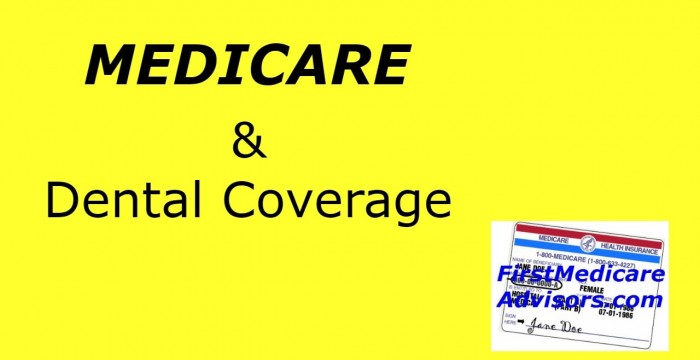– – Recorded Hotline: 1-800-958-8171 – Office: 1-800-825-2919. – – Email: [email protected] – – PS: No Sales Pitches Ever! We hate them much as you do!
This video speaks about Medicare and dental, vision and hearing coverage. Dental coverage is a subject of great interest to many, many people transitioning onto Medicare.
Medicare and dental coverage? You would never guess how many calls I get each day from my supplement clients that want to know what Medicare covers concerning dental work. When we were gainfully employed, most of us had individual or group insurance coverage that had dental plans.
These plans covered such things as checkups, fillings, root canals, crowns and a whole host of other things. These were procedures we used to keep our teeth healthy. Unfortunately, what we consider as good dental care, Medicare considers “medically unnecessary.” Medicare defines what it covers as “acute care” or life threating. Dental care does not fall into the “critical care” column.
What type of dental work might be covered by Medicare? It must be an “acute care” type of medical procedure. For example, if you are in a car wreck and your mouth is severely damaged with broken bones and damaged teeth. Medicare might cover the costs. However, it will be up to your surgeon or doctor to convince Medicare to provide the coverages as “medically necessary” to save your life.
Another area that might be considered “acute care” would be if you had some type oral cancer. I know of one individual that had oral cancer and his dental work was declined. The doctor tried to get it approved and but Medicare would not cover the reconstructive surgery. Medicare did approve the surgical removal of this person’s jaw bone. There was considerable nerve damage due to this procedure. Again, no Medicare approved coverage for making this person life a little more livable.
The best option would be to purchase an individual dental insurance policy. You can enroll in it apart from Medicare. It will cover the normal things, like exams, x-rays, cleanings, fillings, crowns, or root canals. There are several dental plans available in the marketplace. What you should look for is a program without restricted networks, the benefits are available immediately, and there is no waiting period for care.
Another option, you might work with your dental professional for your care to see if they are willing to give retiree discounts for their services. They might also work out payment agreements with you for the more expensive procedures. My dentist didn’t, yours might, so it’s worth taking the time to ask.
Medicare provides services for injuries, sicknesses and “acute care” conditions. Routine dental, visual and hearing are outside of that umbrella. We can help you make other arrangements for your dental care once you make the change over to Medicare.
You are welcome to give us a call for help with your dental, vision and hearing coverages. Our number is 1-800-825-2919. I promise you’ll get an answer that’ll point you in the right direction.
Or, if you prefer, give our office a call on our Recorded Hotline. That number is 1-800-958-8171. Then record your question or request, and we’ll get back with you.
If you’re not comfortable with calling – send us an email to [email protected].
Or, you can visit our website: MedicareAdvisors.com.






